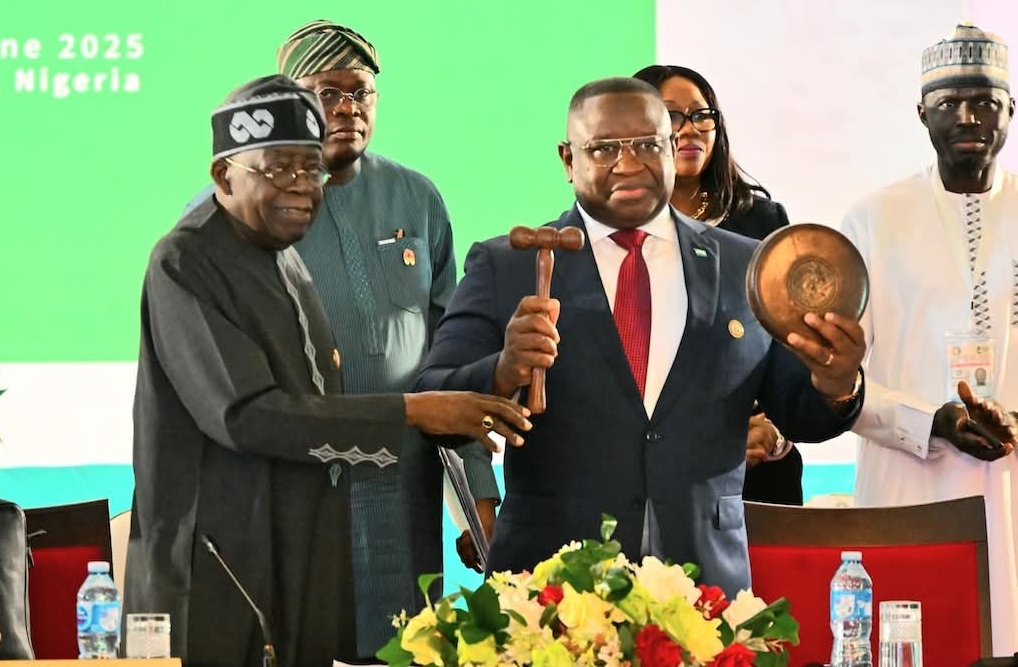Gambiaj.com – (ABUJA, Nigeria) – Meeting in Abuja on Sunday, June 22, 2025 for their 67th ordinary summit, the heads of state and government of the Economic Community of West African States (ECOWAS) designated Sierra Leonean President Julius Maada Bio as the rotating president of the organization. He succeeds Nigerian Bola Ahmed Tinubu, who held this position in a context marked by persistent regional instability.
Thus, Julius Maada Bio inherits a bloc facing a structural crisis, notably with the withdrawal of three member countries – Mali, Burkina Faso, and Niger – grouped within the Alliance of Sahel States (AES).
A handover in a climate of political tensions
In his handover speech, President Tinubu highlighted the diplomatic efforts made under his mandate to try to maintain regional unity. He mentioned the attempts at dialogue with the AES member states and emphasized the urgency of activating the ECOWAS standby force to address cross-border security threats. “We must move from conception to operational reality,” he insisted, calling for a collective response to growing security challenges.
The new incumbent president, Julius Maada Bio, has expressed his willingness to refound ECOWAS around four priorities: the restoration of constitutional order, security cooperation, economic integration, and institutional credibility.
“We must engage transitional governments constructively and strengthen the rule of law,” he said. He acknowledged the various threats facing the region: terrorism, transnational crime, political instability.
AES, security, integration: burning issues
The situation of the Alliance of Sahel States, whose members formally notified their withdrawal from ECOWAS in 2024, remains the main stumbling block. Despite repeated calls for reintegration, no significant progress has been made.
The status quo persists, even though these countries play a crucial role in the security and geopolitical stability of the region.
On the economic front, leaders reiterated the fundamental pillars of regional integration: free movement, common external tariff, infrastructure, and digital economy.
Tinubu particularly praised the organization of the first ECOWAS Trade and Investment Forum, on the occasion of the institution’s 50th anniversary. He also called for “accelerating structuring projects” such as the Abidjan-Lagos corridor, the West African gas pipeline, and the integration of digital platforms.
A tense transition
This change at the helm of ECOWAS comes at a time when the community model is being questioned, torn between strengthened national sovereignties and the need for a collective response to common challenges.
Commission President Omar Alieu Touray praised Tinubu’s leadership and paid tribute to the organization’s founding fathers, calling for a refoundation of ECOWAS in the spirit of the initial commitments.
But beyond speeches, it will now be up to Julius Maada Bio to revive a regional dynamic undermined by departures, distrust, and strategic uncertainties.










